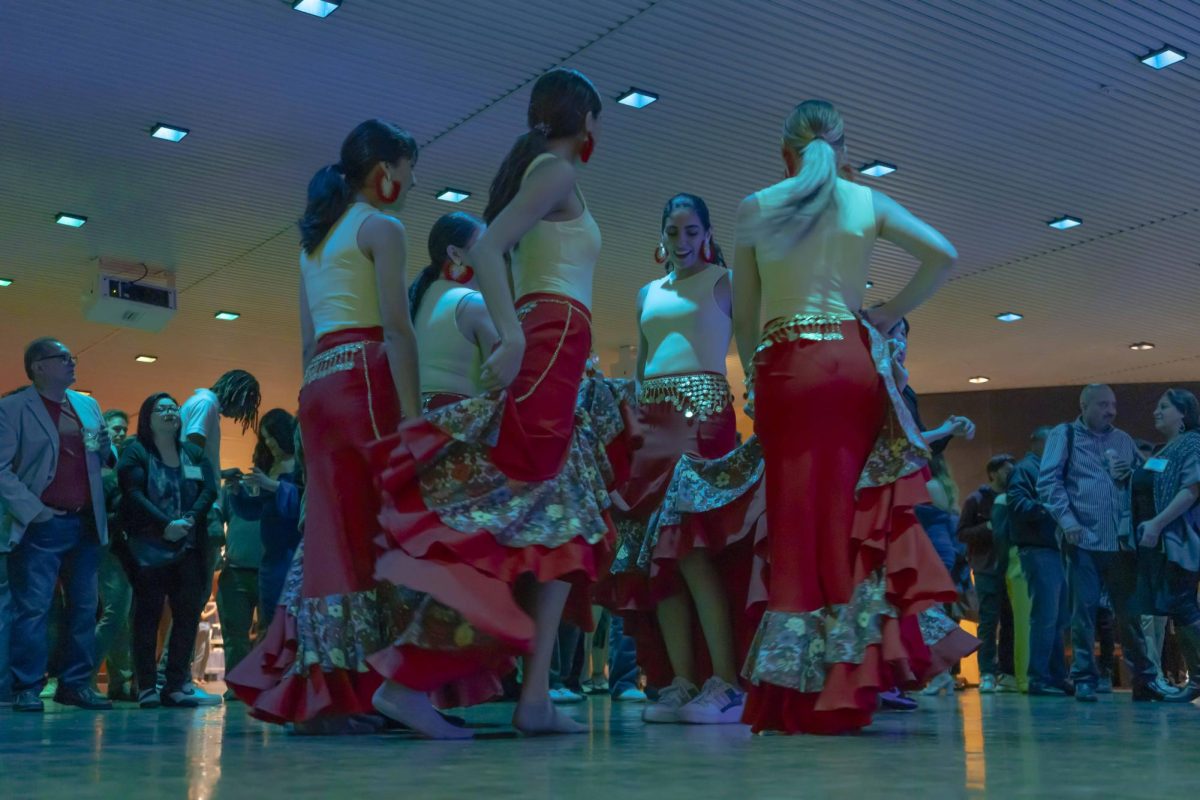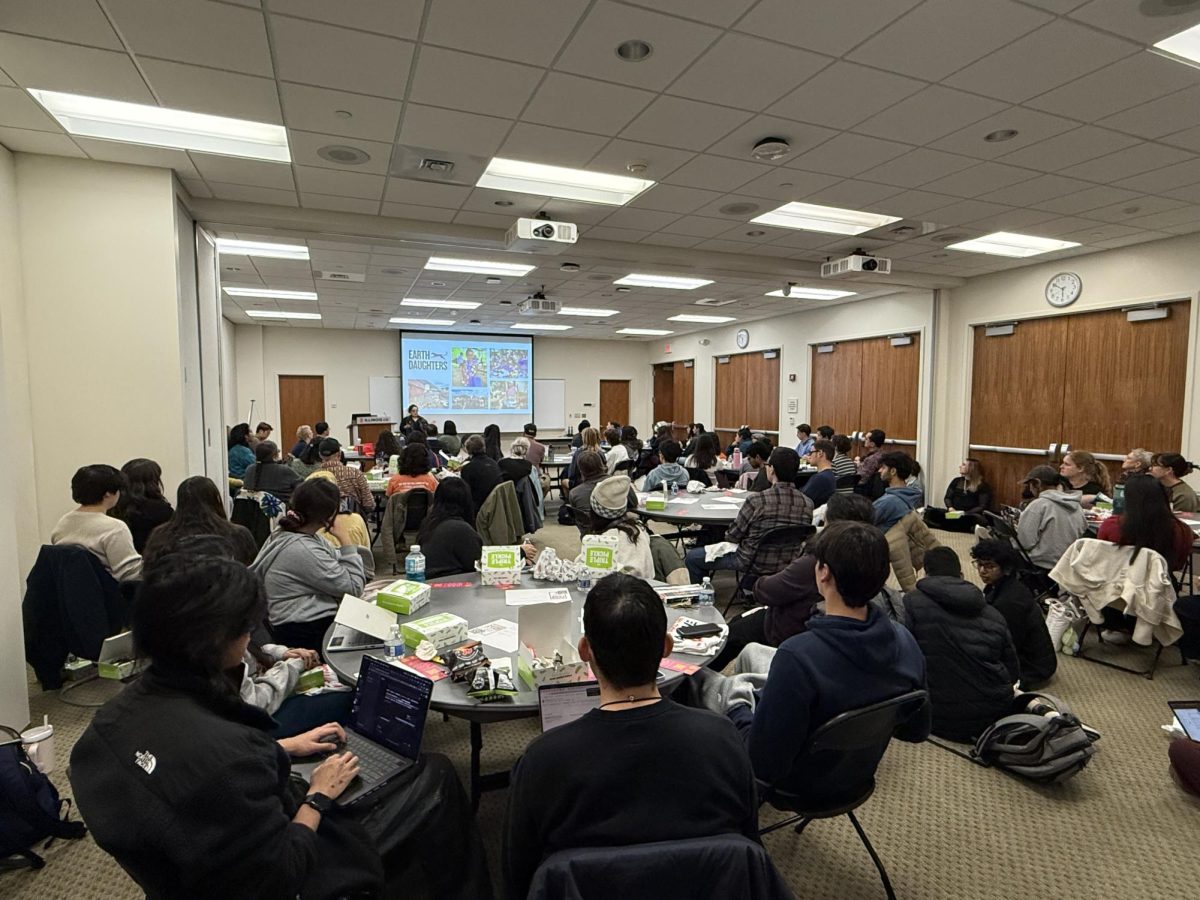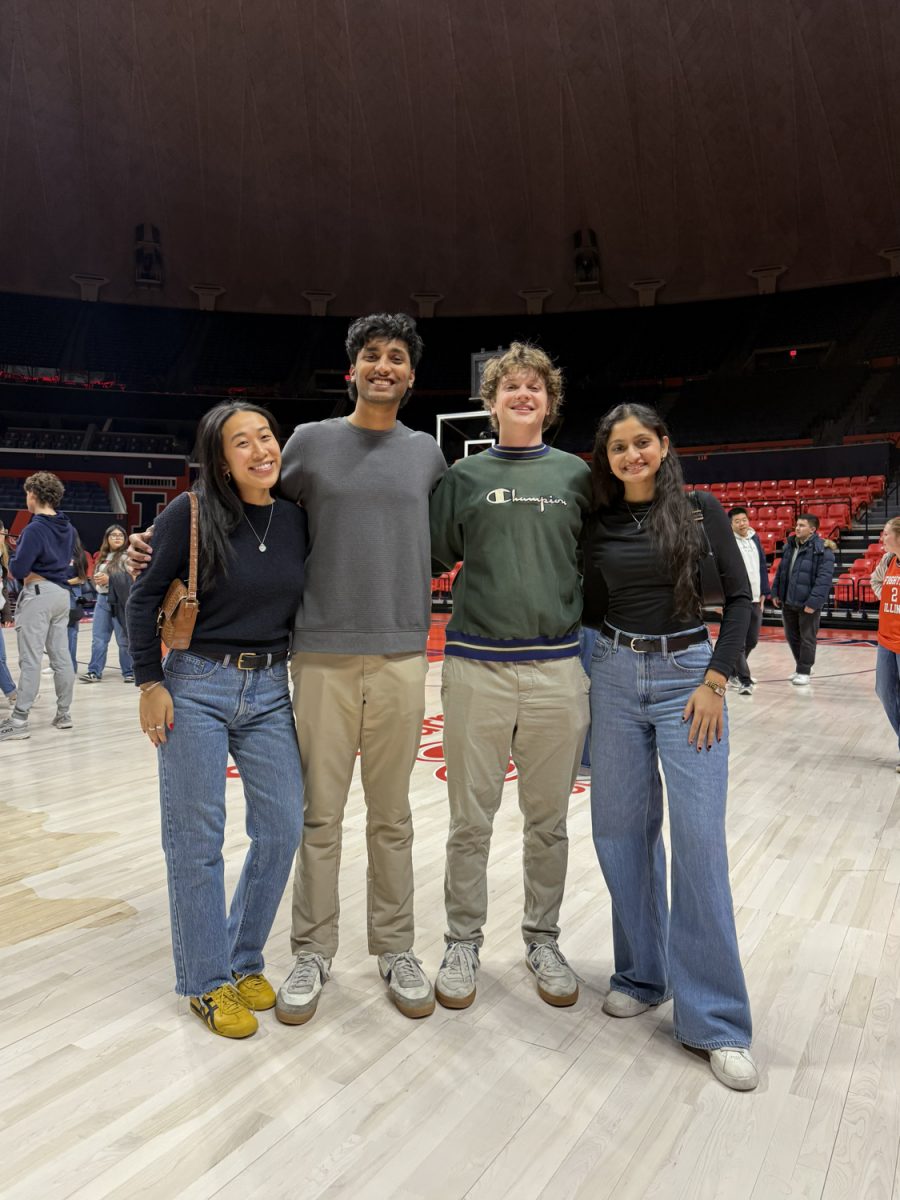For a fleeting instant, the monotonous drone of campus life and the discordant din of traffic was drowned out last weekend by the clamor of La Casa Cultural Latina’s 50th-anniversary celebration. However, the ephemeral festivities served as a monument to a mission that extends far beyond the scope of a mere three-day jubilee.
As alumni, current students and staff mingled in a myriad of events across the campus, La Casa recounted its exigent and poignant past while looking forward to a brilliant future.
“When I think about the future, I think about creating a space that is on a national level of excellence,” said Stephanie Cardoza-Cruz, one of La Casa’s assistant directors. “I think the University is on that level, and I think we can be too.”
The seed for that desired excellence was planted in 1974 when La Casa first came to be following a prolonged battle waged by the school’s Latino community. Things weren’t always easy, especially with the lack of funding allocated to the organization in its beginning, but the spirit of La Casa has persevered, and it continues to light the way.
“We’re not just celebrating the history; we’re also being very intentional,” said Julio Velasco, an assistant director at La Casa. “We need to make sure that we’re also here in the present and setting up La Casa and its legacy for success in the future.”
Get The Daily Illini in your inbox!
One major step toward La Casa’s continued proliferation will be constructing a new home base. La Casa has been rooted at its current location at 1203 W. Nevada St. since 1995, but an influx in student participation is forcing the need for a larger space.
“Just thinking about our weekly programming and how our students fill our space, it’s amazing and exciting, but that means that we need a new space that our students can comfortably fit in,” Velasco said.
The construction of the new edifice is not imminent, but initial renderings were displayed at the 50th-anniversary celebration, and progress could continue within the next few years.
However, just adding space isn’t the staff’s only concern when considering the new locale.
“I think something that’s really important in conversations of a new space is making sure that this is a La Casa that’s built to provide for future generations of La Casa and thinking about how it continues to grow,” Velasco said.
Since its inception five decades ago, La Casa has always been primarily concerned with the well-being of its students, a priority that has superseded virtually every other concern.
“We are a big part of this community. We deserve to feel represented, deserve to feel that the needs of the students are being met and also being advocated for,” Cardoza-Cruz said.
Not only does the Latino community account for a significant slice of the University’s demographic pie, but each and every student that comprises that slice is meaningful to La Casa.
“A big part of what La Casa has been has been about growth and meeting the needs of our students over the past 50 years, and specifically thinking about how our students today need more support than ever because they’re stronger than ever,” Cardoza-Cruz said.
One of the many ways La Casa supports students on a personal level is by providing a safe, nourishing space amid the cacophony of college life.
“We try to be a home away from home for a lot of students,” Velasco said. “Really just making sure that folks know that this is a place where they can come in and be their full, authentic self the second that they walk in the door.”
For the staff, supporting the students is a labor of love, one that often forces them to work long hours and perform arduous tasks. Their work goes a long way in supporting the students under La Casa’s tutelage, but that time and effort are vitally augmented by the work of supporting student organizations.
“Student orgs are the heart of what we do,” Cardoza-Cruz said. “They keep us going.”
The most prominent way student organizations support La Casa is through the La Casa Alliance of Student Organizations (LCASO) — a coalition of RSOs that have applied and been granted membership and agree to abide by the organization’s bylaws.
The aim of LCASO is simple yet powerful: “To promote the integration of the Latina/o community through the collaboration of Latina/o focused and multicultural RSOs with campus and community programs; to enrich the cultural landscape, and to promote the achievement and development of individuals, organizations and the community at large.”
It’s a message that resonates with student leaders as LCASO’s fecundity continues to skyrocket.
“We keep getting new organizations every year that are part of LCASO,” Velasco said. “So we see a lot of like student orgs that are excited, that are ready to be here.”
While a myriad of current students are determined to reciprocate the dedication of La Casa’s assiduous professional staff, the devotion to La Casa doesn’t end with graduation.
In fact, La Casa’s alumni, who turned out in droves for the 50th anniversary celebration, stand as a monument to La Casa’s tenacity while continuing to support its future.
“Our alumni, I think, especially when they were here, they had the hardest parts of what that whole history has looked like,” Cardoza-Cruz said. “And the fact that they’re coming back, they’re showing up, that they’re being here — it means a lot.”
It was the alumni’s interminable vigor that piloted La Casa through the arduous journey to where it is today, according to staff, as the organization faced a bevy of obstacles in its infancy. La Casa was initially granted minimal university benefits, pressing a student committee into action before funds were allocated for a director.
When the organization did receive its first director in the mid-‘70s, a graduate student working the position in a part-time capacity, he stepped down soon after his appointment, citing a lack of university commitment to the Latino community.
La Casa would continue to navigate difficulties throughout the latter half of the 20th century, finally naming a full-time director in 1983 and demanding further changes and university support through a series of protests in 1992 that cleared the way for La Casa to burgeon into the organization it has now become.
However, the vociferous clamor of hundreds of alumni over the weekend stands as proof that the adversity of yesteryear did little to quell prior generations’ love for La Casa.
“There are a lot more here, lining up the steps coming into La Casa,” Cardoza-Cruz. “And that means … that we are going to keep going, we’re going to keep giving back, and that we’re not going anywhere anytime soon.”
Indeed, it’s hard for many to imagine the University without La Casa, and its dedicated staff, passionate students and committed alumni have it auspiciously positioned to carry the legacy it etched through the tribulations of the past far into the future.
“For the past 50 years, the one thing that has really stayed the same at La Casa has been at the heart of the mission, has been the idea that sí se puede,” Cardoza-Cruz said. “No matter what happens, sí se puede, we can do this.”











